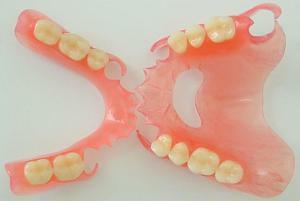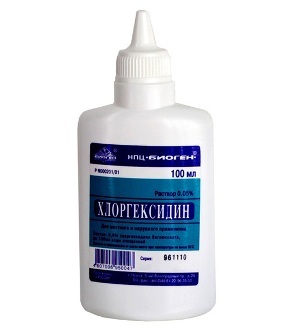 The problem of stale breathing is not always taken seriously. In medicine this phenomenon is called halitosis. It is impossible to remove the smell by masking agents with a strong aroma, since in most cases the cause of the disease is non-sta- tistical.
The problem of stale breathing is not always taken seriously. In medicine this phenomenon is called halitosis. It is impossible to remove the smell by masking agents with a strong aroma, since in most cases the cause of the disease is non-sta- tistical.
In fact, halitosis can not be called an independent disease, rather it is a sign of pathological processes taking place in the body. In the absence of proper oral care, a bad smell intensifies, causing discomfort not only to the patient, but also to others.
Contents
- How to suspect a halitosis?
- The causes of bad breath from the mouth
- What kinds of halitosis exist?
- What approach to treatment to choose?
- How to get rid of a problem at home
How to suspect a halitosis?
A persistent unpleasant odor is considered the main sign of the problem. In some cases, the manifestations of the disease are not so strong that the patient could determine them independently. By self-diagnosis, it is possible to detect the presence of fetid odor from the mouth.
-
 To do this, just fill the exhaled air with cellophane package and after a minute evaluate the odor by releasing the air from the package;
To do this, just fill the exhaled air with cellophane package and after a minute evaluate the odor by releasing the air from the package; - Diagnosing halitosis can be done by scraping of plaque from the back of the tongue;
- Also is offered as a self-test to lick the wrist of the hand and evaluate the odor.
Additional signs include plaque formation in the tongue, inflammation of the mucous membrane, sensation of of an unpleasant aftertaste in the mouth of .These symptoms do not point directly to halitosis and can vary, depending on the cause of the disease and the presence of complicating factors.
 In the laboratory, the contents of the exhaled gas are analyzed. Exceeding the values of hydrogen sulphide, amines and other components will allow to understand the nature of pathology. Among other diagnostic methods:
In the laboratory, the contents of the exhaled gas are analyzed. Exceeding the values of hydrogen sulphide, amines and other components will allow to understand the nature of pathology. Among other diagnostic methods:
- BANA-test;
- gas chromatography;
- sulfide monitoring;
- analysis of the oral cavity.
To establish an accurate clinical picture, diagnostic examinations are assigned to other specialists.
The causes of bad breath from
The following factors contribute to the appearance of halitosis in adults:
- insufficient hygiene of the oral cavity;
-
 inflammation in the mouth;
inflammation in the mouth; - hyposalivation, which can be the result of a rigid diet or hormonal disorders;
- incorrectly selected dentures;
- inflammation in the ENT organs;
- dental diseases - caries, cystic formations, stomatitis, etc.;
- improper diet - a high-carbohydrate diet often leads to bad breath. Oral halitosis is promoted by carbonated drinks, coffee, tobacco, medicines.
But not all types of halitosis are amenable to rapid treatment. Before appointing appropriate therapy, it is necessary to understand why the smell appeared and with what form it is necessary to deal with.
What kinds of halitosis exist?
Unpleasant odor from the mouth is not always homogeneous. When pathologies of internal organs have to deal with one type of halitosis, with dental problems - with another. Traditionally, the following types are distinguished:
-
 physiological - not associated with internal pathologies. Typically, it is a consequence of malnutrition and / or poor oral care. Successfully treatable, does not require specific therapy. Physiological halitosis is observed in tobacco smoking, excessive use of alcohol and coffee, during periods of starvation and drug treatment of other diseases. If the morning smells from the mouth, then this is also a normal phenomenon, which is easily eliminated by hygiene;
physiological - not associated with internal pathologies. Typically, it is a consequence of malnutrition and / or poor oral care. Successfully treatable, does not require specific therapy. Physiological halitosis is observed in tobacco smoking, excessive use of alcohol and coffee, during periods of starvation and drug treatment of other diseases. If the morning smells from the mouth, then this is also a normal phenomenon, which is easily eliminated by hygiene; - pathological - in turn, is divided into oral( associated with dental problems) and extraoral( caused by diseases of the internal organs).
 pseudogalithosis and are also isolated as the antisense .In the first case we are talking about a psychological problem that is associated with obsessive conditions that require psychotherapeutic treatment, when the patient feels that he constantly "stinks" from his mouth. In the second case, the fear of bad breath after a disease is implied. Typically, this is due to the patient's high suspicion and the moral discomfort that he experienced during the period of illness.
pseudogalithosis and are also isolated as the antisense .In the first case we are talking about a psychological problem that is associated with obsessive conditions that require psychotherapeutic treatment, when the patient feels that he constantly "stinks" from his mouth. In the second case, the fear of bad breath after a disease is implied. Typically, this is due to the patient's high suspicion and the moral discomfort that he experienced during the period of illness.
The greatest complexity for treatment is pathological galithosis, which is very diverse and is accompanied by the presence of aggravating factors. When an unpleasant smell comes from the mouth, the patient should pay attention to its shade. The cause for concern are the following manifestations:
-
 odor of stool - occurs with problems with the intestines. Most often this is an intestinal obstruction, complicated by a dysbiosis. Motor dysfunction of the intestine can also lead to a strong smell of this kind. In some cases, fecal odor indicates infection in the respiratory tract;
odor of stool - occurs with problems with the intestines. Most often this is an intestinal obstruction, complicated by a dysbiosis. Motor dysfunction of the intestine can also lead to a strong smell of this kind. In some cases, fecal odor indicates infection in the respiratory tract; - putrefactive odor - most often indicates problems of a dental nature. Typically, this smell occurs when food is ingested under dentures or into carious cavities, can be observed with inflammation of the tonsils or pathological processes in the lungs. The putrefactive decomposition of amino acids leads to the formation of volatile compounds with a characteristic smell of hydrogen sulfide;
- smell of rot - differs from putrefactive by strong concentration and an obvious shade of "decomposition".It occurs both with problems of the oral cavity, and in violation of digestion;
-
 smell of rotten eggs - a clear sign of stomach problems. It is observed with gastritis and decreased acidity. The patient often suffers from belching and discomfort in the stomach. The smell of rotten eggs can also indicate poisoning, which is accompanied by poor health, nausea and weakness;
smell of rotten eggs - a clear sign of stomach problems. It is observed with gastritis and decreased acidity. The patient often suffers from belching and discomfort in the stomach. The smell of rotten eggs can also indicate poisoning, which is accompanied by poor health, nausea and weakness; - acidic odor - occurs with increased acidity. Sour odor from the mouth is accompanied by diseases such as duodenal ulcer, gastritis, stomach ulcer;
- odor of ammonia - occurs with kidney failure;
- odor of acetone - indicates the problems of the pancreas. Often warns of pancreatitis or diabetes.
What approach to treatment to choose?
 It is clear that it is not the halitosis itself that needs to be treated, but the diseases that provoke it. However, to reduce the appearance of a bad smell, regardless of its type, high-quality oral hygiene will help, which can include not only traditional cleansing with toothpaste, but also professional cleaning, removal of plaque from the surface of the tongue, and cleaning the interdental spaces with a thread.
It is clear that it is not the halitosis itself that needs to be treated, but the diseases that provoke it. However, to reduce the appearance of a bad smell, regardless of its type, high-quality oral hygiene will help, which can include not only traditional cleansing with toothpaste, but also professional cleaning, removal of plaque from the surface of the tongue, and cleaning the interdental spaces with a thread.
For the elimination of an unpleasant odor, liquid oral care products are recommended, which are used between the main purification procedures.
To reduce the activity of bacterial microflora in the oral cavity will allow antiseptic drugs:
- triclosan -
 inhibits the development of pathogenic microflora. It is part of dental drugs and hygiene products. Has an antifungal effect;
inhibits the development of pathogenic microflora. It is part of dental drugs and hygiene products. Has an antifungal effect; - chlorhexidine - used to rinse the mouth. Has a prolonged action. Increases the activity of antibiotics, prevents the reproduction of bacteria;
- hydrogen peroxide - removes inflammation, suppresses the activity of bacteria. Effectively fights not only with diseases of the oral cavity, but also ENT organs;
- antiseptics of natural origin - with halitosis, rinsings with decoctions of calendula, chamomile, propolis, echinacea will be useful.
If necessary, the patient is prescribed antibacterial and vitamin therapy. Essential oils of peroxide compounds are used to suppress unpleasant odor from the mouth.
How to get rid of a problem at home

Peppermint
Folk remedies are aimed at eliminating an unpleasant odor. To this end, it will be useful to chew basil leaves or peppermint throughout the day.
For the prevention of dental diseases it is recommended to eat one raw apple daily. However, this method is not suitable for those who have problems with acidity. With increased acidity, it is permissible to eat fruit of sweet varieties.
To remove the fetid odor, rinse with herbal decoctions of .If halitosis is a consequence of sore throat, rinse with sage will be helpful. Decontaminate the stable odor in your mouth with decoctions with melissa, lemongrass, echinacea .

Sage broth
Folk medicine offers a proven method of getting rid of an unpleasant odor - rinsing using vegetable oils .It is believed that during this procedure, the entire plaque and bacteria in the oral cavity are removed. The rinse time is at least 15 minutes. After the procedure, the oil is spit out, and the mouth is rinsed with water or herbal decoction.
Strengthen the effect of procedure sea salt , which must be mixed with oil and left to dissolve. Composition rinse the mouth in the above way. This procedure not only removes the unpleasant odor, but also strengthens the gum.
 Quickly freshen your breath will help ginger or celery .It is enough to chew a piece of any root to freshen your breath and get rid of the unpleasant aftertaste in your mouth.
Quickly freshen your breath will help ginger or celery .It is enough to chew a piece of any root to freshen your breath and get rid of the unpleasant aftertaste in your mouth.
Tincture of celery on alcohol will also be useful in combating halitosis. To prepare tinctures, take a glass of vodka or alcohol and 2 tablespoons of crushed celery root. The resulting mixture is insisted for two weeks in a dark cool place, periodically shaking. Ready tincture is used for rinses, adding one tablespoon to half a cup of water. To remove symptoms, it is recommended to perform the procedure at least three times a day for two weeks.
